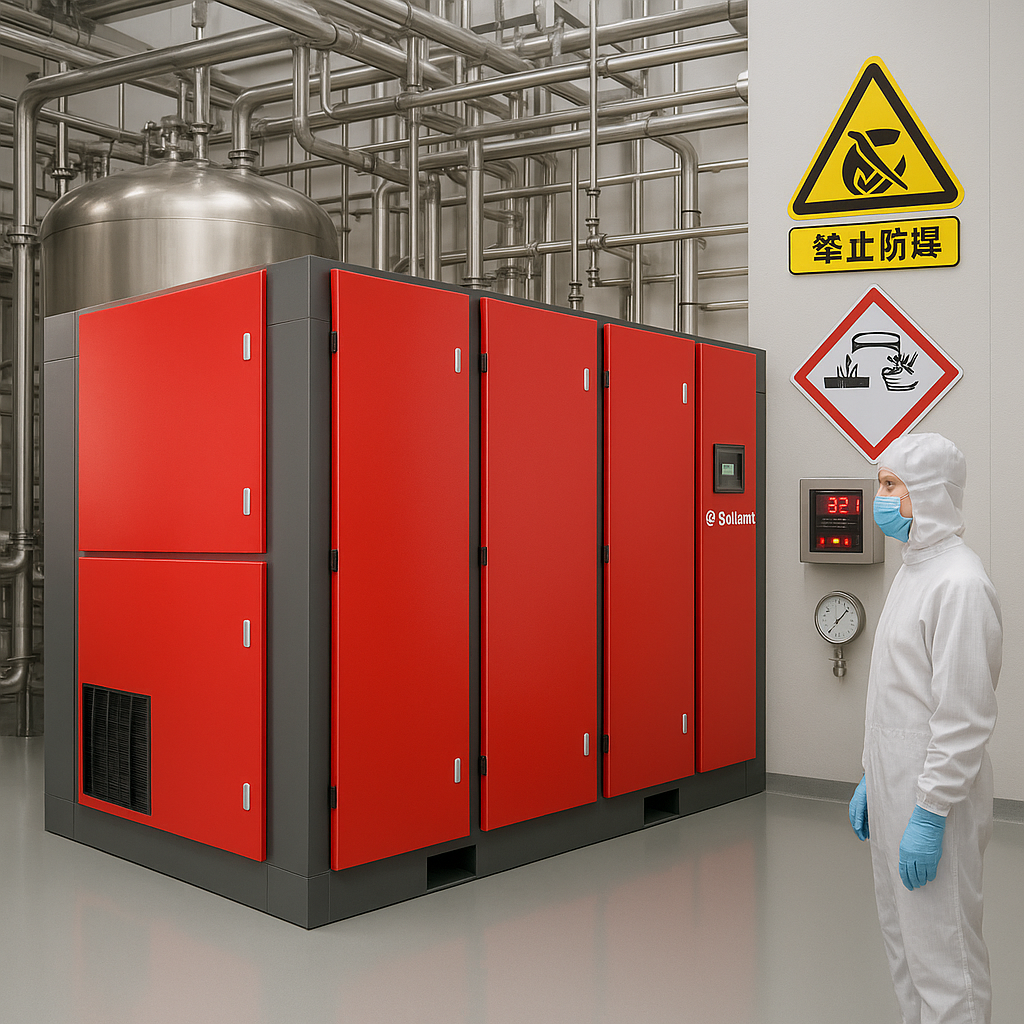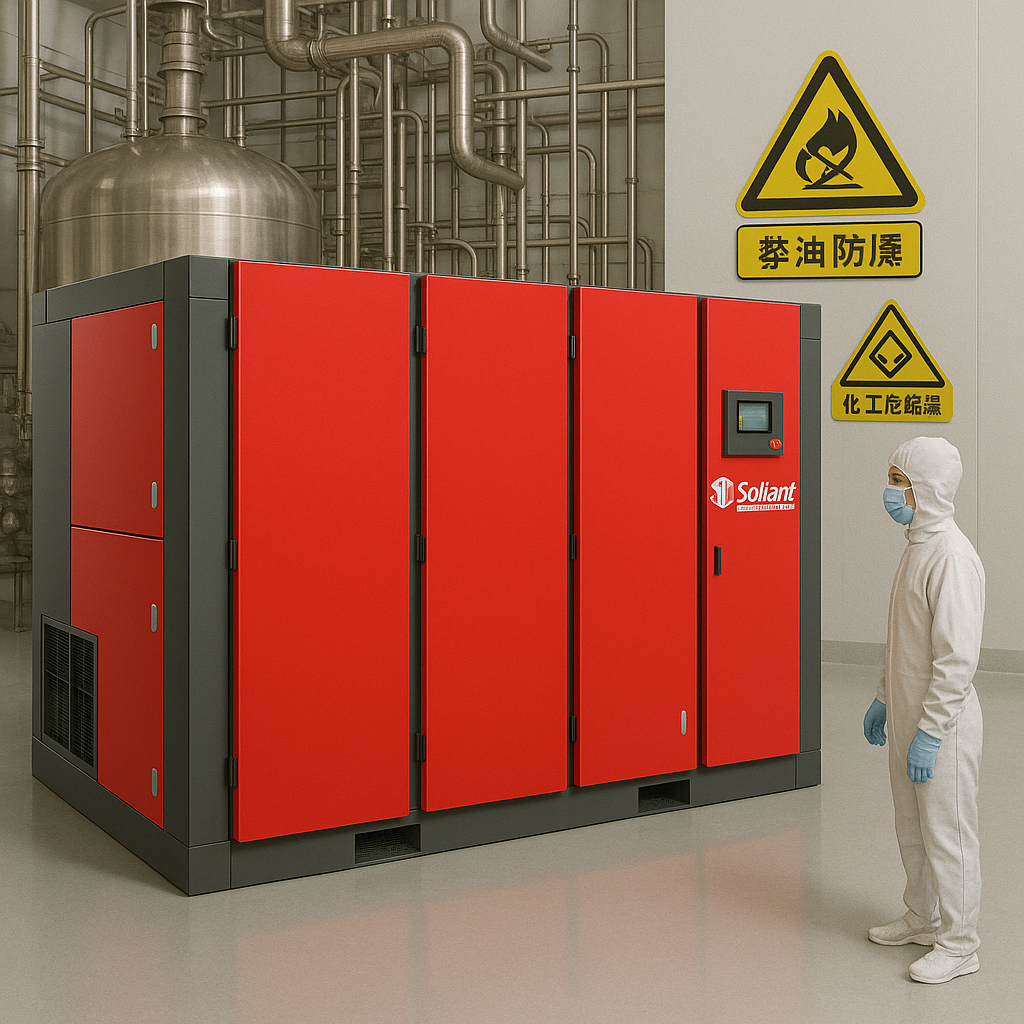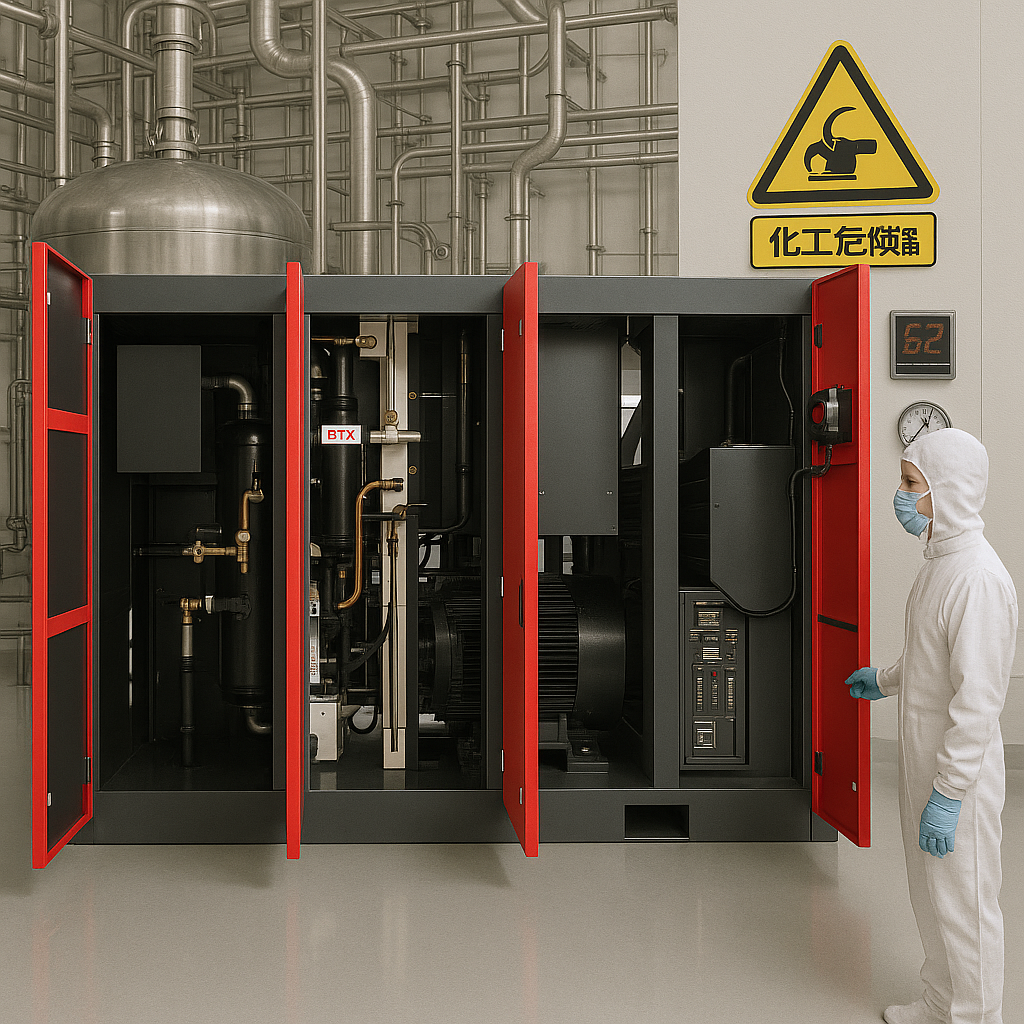4 Key Measures to Prevent High-Temperature Failure of Screw Air Compressors in Summer

During the hot summer and autumn months, rising ambient temperatures pose a significant challenge to the stable operation of screw air compressors. Due to their continuous high-load operation, these machines are prone to overheating, which can result in efficiency losses, increased energy consumption, accelerated component wear, or even sudden shutdowns triggered by temperature protection mechanisms. This not only affects production efficiency but may also lead to costly downtime.
To help address this, Jiangcheng — a professional screw air compressor brand — shares four essential daily maintenance measures that can effectively prevent overheating issues during high-temperature seasons.
1. Monitor Ambient Temperature and Ensure Proper Ventilation
Ambient temperature is a crucial factor influencing compressor performance. Screw air compressors are typically designed to operate within an ambient temperature range of 30°C to 40°C. When the temperature exceeds this threshold, the air becomes less dense, reducing its cooling capacity. Poor ventilation or accumulation of hot air around the unit can further exacerbate this problem.
Recommendations:
-
Regularly monitor the compressor room temperature using thermometers or sensors.
-
Improve ventilation by installing exhaust fans, louvers, or ducted airflow systems.
-
Avoid placing the compressor in areas exposed to direct sunlight or near heat-emitting equipment.
-
Keep the cooling fins, radiators, and internal components clean and free from dust or oil buildup to ensure optimal heat dissipation.
2. Check Oil and Gas Tank Levels to Maintain Proper Lubrication
Lubricating oil plays a dual role in screw air compressors — it not only lubricates moving parts but also serves as a cooling medium. Low oil levels can result in inadequate cooling and increased friction, both of which contribute to a rise in operating temperature.
Best practices:
-
After shutdown and pressure relief, check the oil level in the oil-gas tank. It should be within the marked scale.
-
If the oil level is below the minimum mark or not visible, stop the compressor immediately and refill with the manufacturer-recommended oil type.
-
Never attempt to refill oil while the machine is running, as high-temperature oil may cause burns or equipment damage.

3. Inspect the Oil Stop Valve to Avoid Backflow and Dry Starts
The oil stop valve is designed to prevent oil from flowing backward from the oil-gas tank into the compressor head when the unit is shut down. If this valve fails or is not functioning correctly, oil may backflow or fail to circulate properly during the next startup, causing a rapid temperature rise and potential bearing damage.
Maintenance tips:
-
Routinely inspect the oil stop valve for proper function and responsiveness.
-
If you notice oil spraying from the air intake or unusually high temperatures shortly after startup, the oil stop valve may be malfunctioning.
-
Ensure correct installation orientation and seal integrity during valve replacement or servicing.
4. Maintain and Replace the Oil Filter to Ensure Uninterrupted Oil Flow
The oil filter removes impurities from the lubricating oil, ensuring smooth and clean oil circulation throughout the system. However, over time, the filter may become clogged or damaged, reducing oil flow and impairing cooling performance.
Maintenance advice:
-
Replace the oil filter at regular intervals (typically every 1,500 operating hours or according to the manufacturer’s schedule).
-
If signs of blockage occur — such as rapid temperature spikes or frequent alarms — shut down the unit and inspect the filter immediately.
-
Always use original, high-quality spare parts to maintain system efficiency and reliability.

Conclusion
The summer heat can place significant stress on screw air compressors, but with proactive maintenance and these four key measures — managing ambient temperature, maintaining oil levels, checking the oil stop valve, and servicing the oil filter — businesses can effectively prevent high-temperature faults. These simple yet vital steps help extend equipment life, reduce energy costs, and maintain continuous, reliable production.
For more technical assistance or customized maintenance plans, feel free to contact Jiangcheng’s expert support team. We’re here to ensure your compressor performs optimally year-round.
Why is the Air Receiver Tank Essential in Your Compressed Air System?


